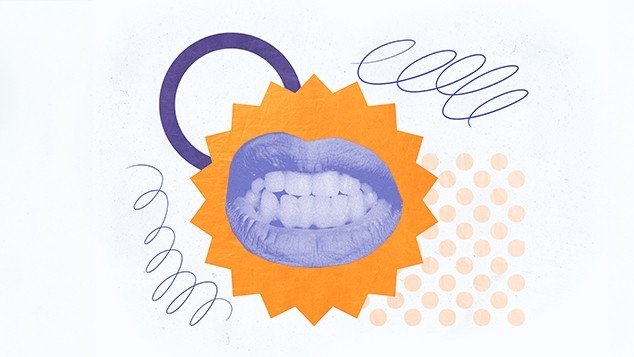- Diseases
- Acoustic Neuroma (16)
- Adrenal Gland Tumor (24)
- Anal Cancer (70)
- Anemia (2)
- Appendix Cancer (18)
- Bile Duct Cancer (26)
- Bladder Cancer (74)
- Brain Metastases (28)
- Brain Tumor (234)
- Breast Cancer (726)
- Breast Implant-Associated Anaplastic Large Cell Lymphoma (2)
- Cancer of Unknown Primary (4)
- Carcinoid Tumor (8)
- Cervical Cancer (164)
- Colon Cancer (168)
- Colorectal Cancer (118)
- Endocrine Tumor (4)
- Esophageal Cancer (44)
- Eye Cancer (36)
- Fallopian Tube Cancer (8)
- Germ Cell Tumor (4)
- Gestational Trophoblastic Disease (2)
- Head and Neck Cancer (14)
- Kidney Cancer (130)
- Leukemia (342)
- Liver Cancer (50)
- Lung Cancer (286)
- Lymphoma (278)
- Mesothelioma (14)
- Metastasis (30)
- Multiple Myeloma (100)
- Myelodysplastic Syndrome (60)
- Myeloproliferative Neoplasm (6)
- Neuroendocrine Tumors (16)
- Oral Cancer (102)
- Ovarian Cancer (178)
- Pancreatic Cancer (160)
- Parathyroid Disease (2)
- Penile Cancer (14)
- Pituitary Tumor (6)
- Prostate Cancer (150)
- Rectal Cancer (58)
- Renal Medullary Carcinoma (6)
- Salivary Gland Cancer (14)
- Sarcoma (238)
- Skin Cancer (300)
- Skull Base Tumors (56)
- Spinal Tumor (12)
- Stomach Cancer (66)
- Testicular Cancer (28)
- Throat Cancer (92)
- Thymoma (6)
- Thyroid Cancer (100)
- Tonsil Cancer (30)
- Uterine Cancer (86)
- Vaginal Cancer (18)
- Vulvar Cancer (22)
- Cancer Topic
- Adolescent and Young Adult Cancer Issues (22)
- Advance Care Planning (12)
- Biostatistics (2)
- Blood Donation (18)
- Bone Health (8)
- COVID-19 (360)
- Cancer Recurrence (120)
- Childhood Cancer Issues (120)
- Clinical Trials (628)
- Complementary Integrative Medicine (22)
- Cytogenetics (2)
- DNA Methylation (4)
- Diagnosis (238)
- Epigenetics (6)
- Fertility (62)
- Follow-up Guidelines (2)
- Health Disparities (14)
- Hereditary Cancer Syndromes (128)
- Immunology (18)
- Li-Fraumeni Syndrome (8)
- Mental Health (122)
- Molecular Diagnostics (8)
- Pain Management (62)
- Palliative Care (8)
- Pathology (10)
- Physical Therapy (18)
- Pregnancy (18)
- Prevention (936)
- Research (390)
- Second Opinion (78)
- Sexuality (16)
- Side Effects (616)
- Sleep Disorders (10)
- Stem Cell Transplantation Cellular Therapy (216)
- Support (408)
- Survivorship (328)
- Symptoms (182)
- Treatment (1788)
The caregiver chronicles: The red flags
BY Judy Overton
3 minute read | Published September 03, 2010
Medically Reviewed | Last reviewed by an MD Anderson Cancer Center medical professional on September 03, 2010
Once Tom was admitted to a local Houston hospital, a urologist and a team of medical personnel examined him. The lead doctor said the surgery to remove the mass and his left kidney would take place on Friday.
"Why wait three days?" I asked. "We don't want to rush into it," is what I recall him saying, although I'm certain he seemed perturbed that I asked.
He also confirmed that the mass was estimated to weigh 7-9 pounds. No wonder Tom's waistline had expanded to the extent that he looked like a miniature version of Henry VIII, I reflected. Shamefully, I had thought it was his consumption of alcohol that caused this, though perhaps that was partly responsible for this predicament.
Were there other warning signs we had both ignored?
Tom spent most of the day slightly medicated while the large tumor sloshed about, ready to leap out of his body at the first opportunity. I was coiled up on a chair that pulled out as a daybed, having an all-day pity party.
I believe this is where my deep grieving began. I simply could not stop crying. The only time I maintained control of my emotions was when a nurse stopped by to check Tom's vitals or the doctor stopped by.
How could I have overlooked this? I remembered hugging Tom a few weeks earlier, and being startled that his stomach seemed extremely tight. But I shrugged it off, because he often consumed a few beers when he got home, and sometimes had a Scotch and water before calling it a night.
There were other red flags, if our eyes had been wide open.
On another occasion, we had grabbed hamburgers for a weekend meal. I've always had a ravenous appetite, and quickly downed my food. Tom was almost apologetic when he said, "I haven't been able to eat a whole hamburger lately." I was surprised to see he barely finished half of it.
Before you assume that Tom mirrored the statistics that indicate men don't have checkups as frequently as women, let me stop you there. He actually was better about visiting his doctor than I.
Because of Tom's weight, the doctor often sent him home with a prescribed diet.
But Tom was never grossly overweight. In fact, when we first met, he was almost too thin, weighing in at 164 pounds on his big-boned, 6-foot-1-inch frame. In recent years, Tom weighed around 215. Men tend to gain weight after a few years of marriage and good home cooking, right?
He was on medication for high blood pressure, which might've been a symptom of his current situation. But he thought it was hereditary, since both his parents were treated for high blood pressure.
One Saturday, after his latest doctor's appointment, I'd glanced over at him in his skivvies. Suddenly, he reminded me of Akhenaten, the pharaoh immortalized in a Houston Grand Opera production in 1983. Akhenaten had a slender body, with the exception of a protruding tummy.
I held my tongue. Too many times in the past I had suggested he lose weight. "Let him alone," I thought. "He's fine just the way he is."
The other ailment Tom was experiencing was throwing up every morning after breakfast. It was like clockwork. He'd eat, head out the door, and before stepping into his car, he'd regurgitate everything.
Why hadn't I been more inquisitive? Was I not caring enough?





